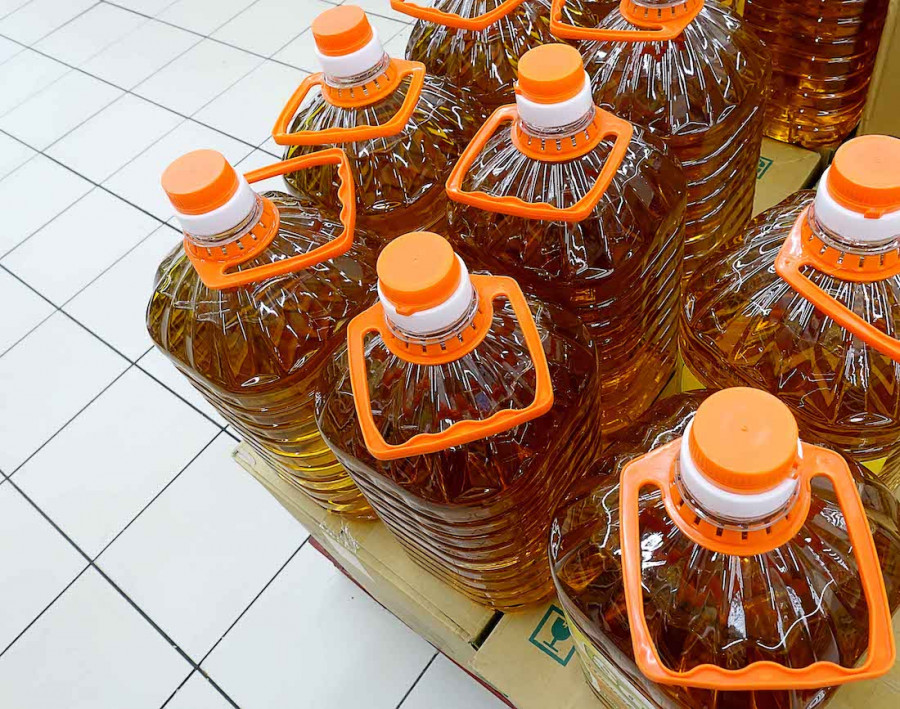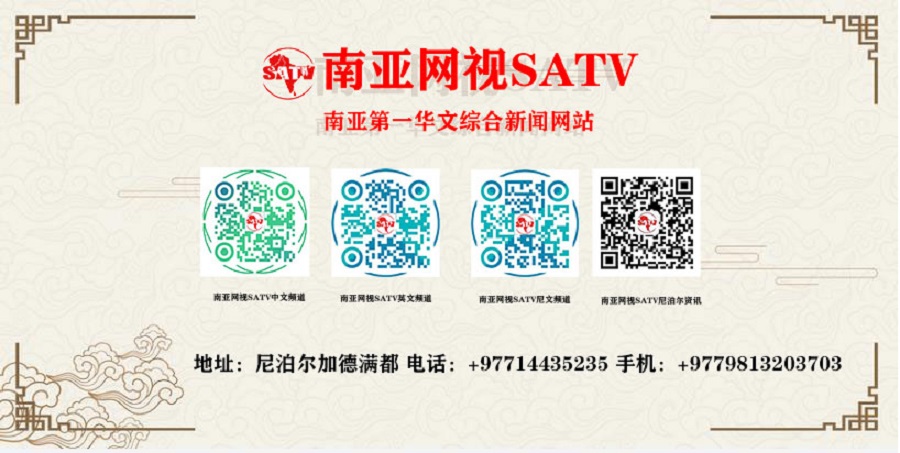
Trade experts say importing crude oil under zero tariff privilege and exporting it to India under zero traffic privilege gives Nepali traders a net profit of 45 percent, excluding other profits. Shutterstock
Nepal's edible oil exports to India reached Rs68.66 billion in the first six months of the current fiscal year, raising hopes of crossing the Rs100 billion mark by the end of the year.
Shipments in the first half of the fiscal year from mid-July 2021 to mid-January 2022 were up Rs17.44 billion year on year.
“The goal of increasing exports to Rs100 billion is becoming real and visible,” said Purushottam Ojha, former commerce secretary and a trade expert. “If India does not make any changes in the import tariff or does not make any provision to import refined vegetable oil directly from other countries by reducing the duty, this will definitely happen,” he told the Post.
According to the Department of Customs, Nepal exported Rs68.66 billion worth of edible oil in the first six months while importing crude soybean, palm and sunflower oils valued at Rs73.96 billion.
Nepal's exports of processed soybean oil totalled 145,561 tonnes worth Rs34.26 billion during the first half. During the same period of the last fiscal year 2020-21, shipments came to 115,644 tonnes valued at Rs17 billion.
Imports of crude soybean came to 1 million tonnes worth Rs36.54 billion in the first six months of the current fiscal year. During the same period, the country earned revenue amounting to Rs3.23 billion in import duty from the import of crude soybean oil.
Most of the imports of crude soybean oil came from Argentina, Brazil and Paraguay.
Nepal's palm oil exports reached 153,133 tonnes worth Rs31.97 billion during the review period.
The country imported 207,957 tonnes of crude palm oil worth Rs27.49 billion during the same period. Palm oil imports contributed Rs1.79 billion in import duty to the government coffers.
Nepal imported crude palm oil mainly from Indonesia, Malaysia and the Philippines.
The country exported sunflower oil worth Rs2.41 billion during the review period.
“We are spending a huge amount of money while importing raw materials and paying for them in dollars and exporting the finished products for Indian currency,” Ojha said. “So, we can say that it is not a sustainable export,” he said.
According to Ojha, if the Indian government reduces the import duty on edible oil from other countries, edible oil exports from Nepal will face the same fate as exports of vegetable fat did in 2004-05.
"Exports of vegetable fat increased enormously in 2002-03, but when the Indian government lowered the import duty, shipments from Nepal stopped completely," he said.
“If this happens in the case of soybean and palm oil, the whole export boom will collapse,” Ojha added.
"Exports are actually just being channelled or re-routed through a least developed country like Nepal and Bangladesh due to zero tariff," Ojha said.
"India might be doing this as importing edible oil in this manner means lower prices for Indian buyers even though the government may lose out on revenue," Ojha said. "Vegetable oil is mostly used by the public, and so the Indian government tries to keep down prices."
Despite the impressive export statistics, Nepal's soybean oil trade contributes very little to the national economy, economists say.
Trade experts say importing crude oil under zero tariff privilege and exporting it to India under zero traffic privilege gives Nepali traders a net profit of 45 percent, excluding other profits.
Tariff exemptions on Nepali exports to India under the South Asian Free Trade Area (SAFTA) agreement give domestic traders an advantage. Countries outside of South Asia are slapped with tariffs of 45 percent on soybean oil.
According to Indian media reports, Indians will probably buy expensive cooking oils from overseas for at least another 15 years as demand continues to far outpace domestic production. Consumption is expected to climb in India by as much as 17 percent over the next four years.
India is one of the world’s largest buyers of vegetable oils as farmers have typically focused on growing cotton and staples like rice, wheat and sugar, partly because the government sets price floors for these crops and buys some of them, such as food grain in bulk for its welfare programmes, the report said.
Trade economists say that the government is happy that it has met the Rs100 billion export target set a decade ago; but if edible oil exports, which Nepal does not produce or produces very little, were to be removed from the trade list, exports will go into negative growth.













